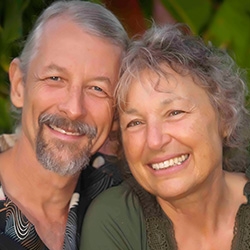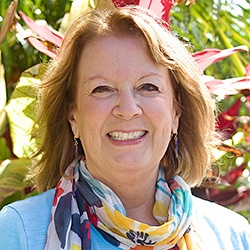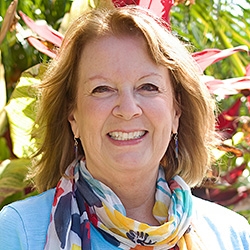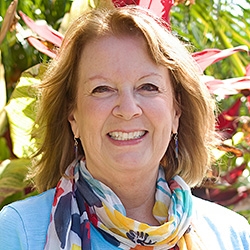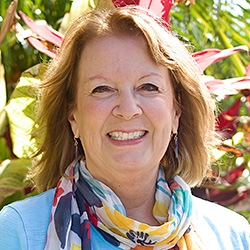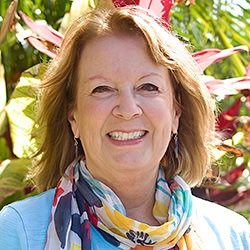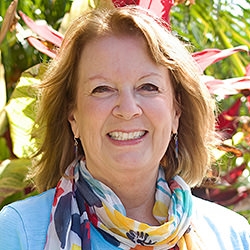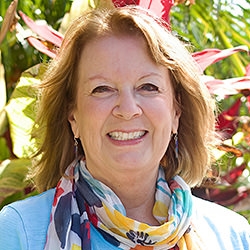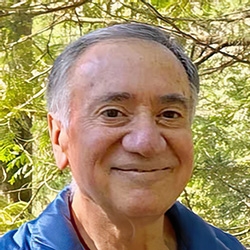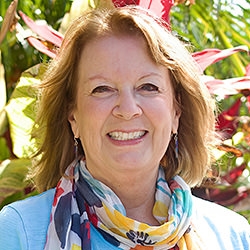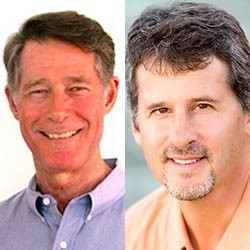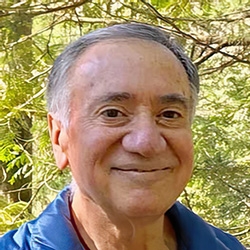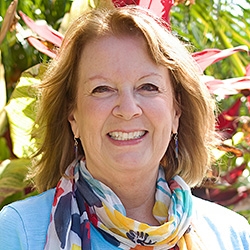

Search Results: process
-
CNVC Certified Trainer Alan Rafael Seid guides you to create a relationship with money that is clear, empowered and non-stressful. In which money plays a purposeful role in helping you create your ideal life, rather than unconsciously undermining your ability to achieve your dreams.
-
Listen to Jim and Jori Manske share how we are conditioned to disconnect from our own feelings and how we can unlearn this habit to experience more full and rich inner lives.
-
Jim and Jori offer a tip to stay present in the face of our reactivity to witnessed conflict.
-
Trainer Tip: Silent empathy can be a powerful way of contributing to someone's life, giving them the gift of our presence.
-
Trainer Tip: Take a moment to consider feelings, our conditioning about expressing or even feeling emotion, and the value of re-evaluating our relationship to feelings.
-
Trainer Tip: Q: How do we get the love we want? A: Ask for it.
-
Trainer Tip: Anger is a prominent call to gain our attention. Mary explains why it's worth heeding that call.
-
Recently, I have been pondering anger, how I express it and the jackal story I tell myself about it. Marshall Rosenberg taught that anger is a natural emotion that is based on a judgment of someone else or myself. I agree with this, so I have been doing some “enemy images” and self-empathy work (and praying for those who are most likely to be the recipients of my anger). My goal was to clear my judgments and take responsibility for my “stuff.” It has helped a lot, and yet I still feel a general anger in me that is not directly related to anyone or any specific situation.
-
I want to report that after writing last month’s Growing Roots letter, I did indeed employ my tried-and-true method of moving past inertia: First step time limits. In doing so, I made progress on planting my vegetable garden.
-
October always makes me think about Marshall Rosenberg, the founder of Nonviolent Communication. He was born October 6, 1934. If he were still alive today (he died February 7, 2015), he would be 89 years old!
-
If you're interested in learning specifically how and what you can do to live compassionately – with plenty of hands-on practice time – this course is for you. Observe actual demonstrations of Robert guiding participants through the transformational territory of healing and integration.
-
It is the first day of December and it seems to me as if 2023 went by with a flash. I have felt deep despair about the growing division between people and the devastating impact it has had on human beings, all life in fact, including our planet. And, I have also experienced many moments of joy and satisfaction this year.
-
Listen to this introductory 4-session Mediate Your Life telecourse recording to change your response to conflict and change your life.
-
Do you ever think you have the perfect answer for someone who is struggling? Eric offers a tip on how to approach situations like this.
-
Who does not want to be understood? In Tip #6, Eric shows you how to deepen connection and trust by checking your understanding with the person you are conversing with.
-
One of the premises in NVC is that behind all behavior and expressions are Universal Human Needs as the deeper motivators. And one of the key distinctions in NVC is that between Needs and Strategies. Try Alan Rafael Seid's exercise called "Peeling the Layers of the Onion, " a process for uncovering these needs — the deeper motivations — that underlie words and behaviors we may find disturbing or puzzling.
-
How do you know when you’re projecting disowned parts or replaying old relationship dynamics? It’s hard to know for sure, but if you find yourself upset or shutting down and unable to have a dialogue in which you can speak clearly about your feelings and needs and empathize with the other’s feelings and needs, there is likely a projection. The stronger your reaction, the more likely you are projecting.
-
In learning how to re-invent the economic system so that it distributes resources in a way that includes as many people's needs as possible, we would need to be in a process of mutual influence with one another. However, addressing resource distribution can be complex when people in different social locations have 1.)a different sense of what's considered "enough" 2.) different capacities to find creative strategies that work within the given limitations, and 3.)different levels of self-doubt, shame and capacity to put their concerns and needs on the table. Can we collectively create conditions that support people to stretch productively so that included in the outcome are the needs, perspectives, ideas, and concerns of people who are less powerful? What needs to be in place to support the way towards a better future?
-
Living Compassion, for Robert, represents the spirituality that resides in every aspect of Nonviolent Communication. Its foundational principles are represented by three primary qualities or states of being: clarity, compassion and empowerment.
In this course you’ll explore – and practice – how the unfolding of inner clarity opens your way to compassion, which further unfolds into empowerment. Throughout this unfolding process, Robert will include maps and tips for shifting your everyday life from one that is relatively limiting to a life that is both transformative, healing and liberating.
-
Trainer Tip: When we love a child there's a contribution we can provide in helping them go their own way successfully, in big ways and small.

Quick Links
Subscription Preferences
Stay In Touch!
Looking for ways to keep up with NVC Academy news, get special offers, free resources, or words of inspiration? Here are five ways to stay engaged:


